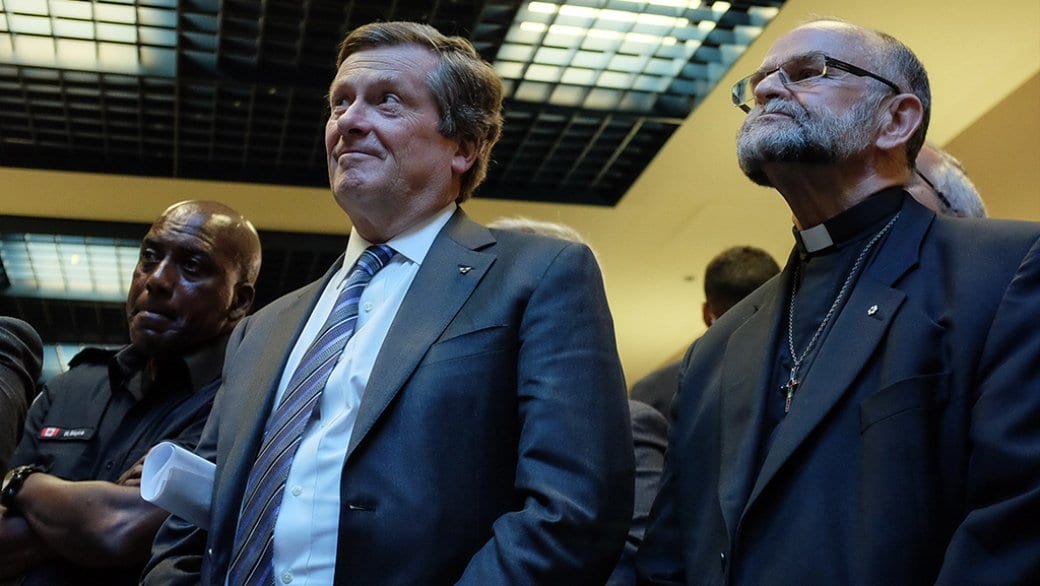Anytime a community leader is accused of a crime, it’s going to be a big deal. But the circumstances surrounding the Brent Hawkes case made this even more so.
First was the nature of the charges. Stemming from an alleged incident in the 1970s when Hawkes was a high school teacher in Nova Scotia, he was charged with gross indecency and indecent assault, two provisions of the Criminal Code that were removed long ago. The Crown argues that the two counts amount to the modern day crime of sexual assault. Hawkes’ defenders believe they’re homophobic.
But the reaction was coloured even more by who Hawkes is. By his own account, he is one of the most well-known and well-respected religious leaders in the country. He’s a recipient of the Order of Canada. The mythology that’s developed around him — going on a hunger strike after the bathhouse raids, conducting the first recognized same-sex marriage in a bulletproof vest, eulogizing Jack Layton at his funeral — has cemented itself in Toronto’s imagination.
So when the charges were brought against Hawkes, the reaction felt familiar to anyone who has followed the many beloved public figures who have been accused of sexual assault in the past few years.
Several prominent community members and politicians rallied to his defence. Craig Scott said unequivocally that he believes Hawkes is innocent. Bob Rae and Olivia Chow expressed their support for their friend. Bill Blair, Paula Fletcher and Peter Tabuns all attended the first service after the charges became public. Doug Elliott, Kim Vance, Al McNutt and Rachel Lauren Clarke started the Brent Hawkes Support Fund to help fund legal costs.
There was also institutional complacency. The Metropolitan Community Church of Toronto said that it would be business as usual at the church and no additional measures would be put in place, going against common practices used by other public organizations when similar accusations have been brought forward. During Toronto’s Pride Month, Hawkes appeared at numerous events, speaking on a panel about the bathhouse raids, addressing the crowd during the Orlando memorial, holding a service attended by the prime minister and most notably, negotiating with the Toronto police about their acknowledgement of Operation Soap.
Finally, there were the attacks on the accuser. During the trial, numerous LGBT community members took to social media to argue that the accuser was deeply disturbed and a pathological liar. Others said that he was certainly a closeted gay man who had consensually had sex with a teacher and was now lashing out in shame.
It’s important to note here that the charges against Hawkes’ have not been proven and he is still an innocent man. Hawkes’ can and should defend himself to whatever extent he needs to.
But the way community members were talking about this case made it clear that few people have learned the lessons of the last few years. It was a reminder of why so few victims of sexual assault are willing to come forward and why rape shield laws are necessary.
Whether Hawkes is innocent or guilty, I can’t help but thinking that this case will make it harder for anyone who has been assaulted by a prominent member of the LGBT community to come forward in the future.
This story is part of Xtra’s A Year in Review news picks for 2016.

 Why you can trust Xtra
Why you can trust Xtra


